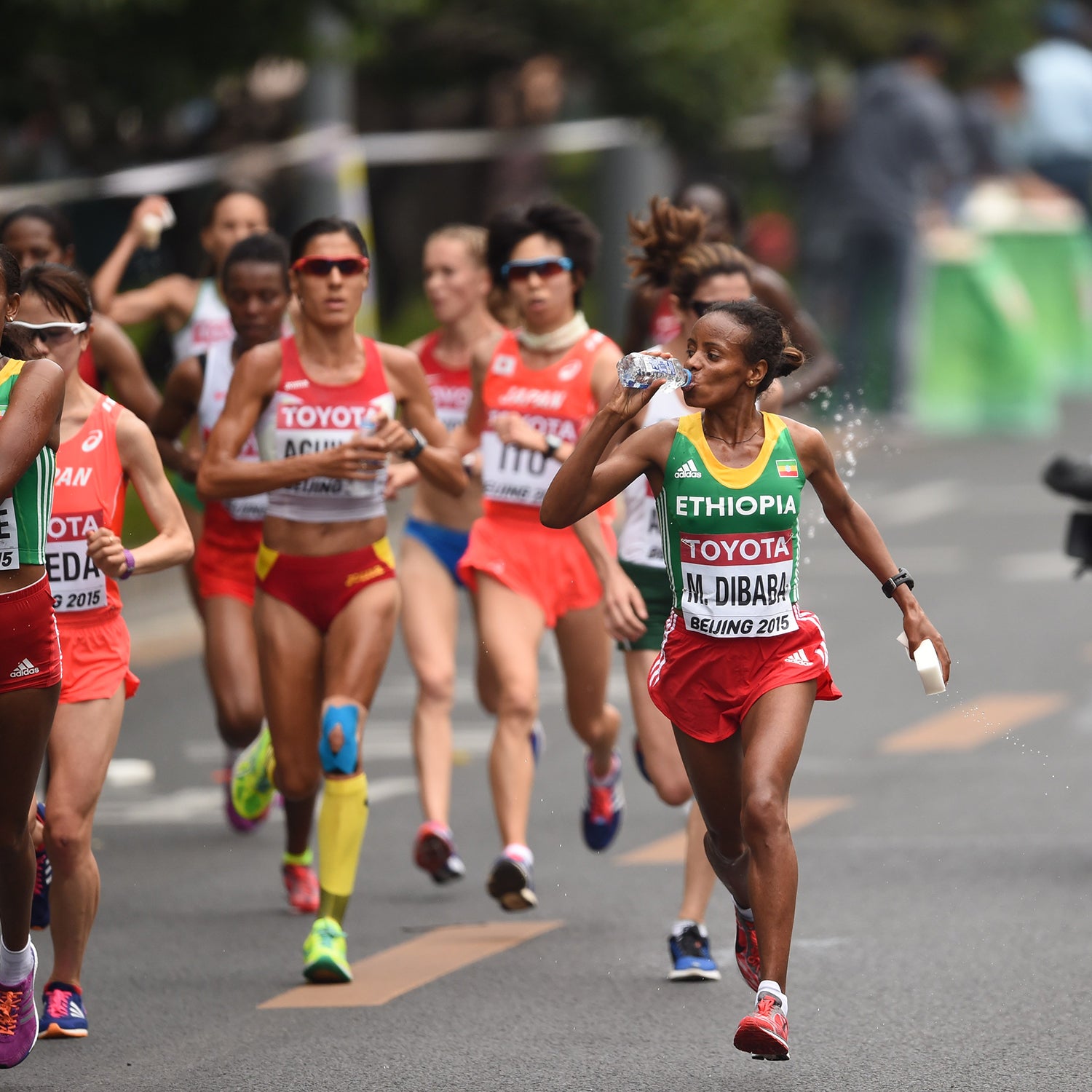The average man lugs around about 44 liters of water—nearly 100 pounds worth—tucked away inside his cells and filling the gaps between them, or coursing through his blood vessels. The average woman, in contrast, carries only 31 liters. Even when you consider that women are generally smaller than men, the difference persists: men’s weight is about 58 percent water, women’s is 49 percent. That’s mainly because men have more muscle, which holds more water than fat tissue.
The hard question, and the one that grapples with, is whether this makes any difference to how men and women respond to exercise-induced dehydration. To skip ahead to the punchline, the answer is that we’re not sure yet, because most of the dehydration research has taken place on men. But the authors—Kate Wickham and Stephen Cheung of Brock University, Devin McCarthy of McMaster University, and Lawrence Spriet of the University of Guelph—make the case that there’s enough evidence that we can’t simply assume that there are no differences. The research needs to be done.
To start, it’s worth noting that not everyone agrees with the premise that dehydration is a serious problem for athletes or exercisers, regardless of their sex. In fact, one of the authors of the new review, Cheung, in which cyclists were rehydrated (or, in the control group, not) with an IV drip inserted in their arms, so that they didn’t know whether they were dehydrated or not. Under those circumstances, Cheung found that even sweating out three percent of your starting weight doesn’t hinder performance. It’s certainly clear (in my reading of the research, at least) that letting yourself get severely dehydrated will eventually hurt performance. It’s less clear, however, that you need to do anything beyond drinking when you’re thirsty to avoid those problems.
There isn’t much research directly comparing the dehydration responses of men and women, so Wickham and her colleagues found pairs of studies that put groups of men or women through similar protocols in order to compare the results. One of the patterns they observed was that core temperature seemed to rise sooner in women than men. For example, in a 120-minute cycling bout, core temperature started rising after 30 minutes in women, at which point they’d lost as little as 0.5 percent of their starting weight. In men, temperature didn’t start rising until 60 minutes and 1.5 percent weight loss.
One possible explanation for this observation is that women, with less water in their body to start with, are more sensitive to small sweat losses. It’s not straightforward, though, because you can compensate for sweat losses by shifting fluids from other parts of the body to keep your blood volume stable. Indeed, in the cycling studies, women sweated out a greater percentage of their body mass but their blood plasma volume decreased by a similar amount compared to men.
There are also differences in how men and women sweat. Women tend to have smaller, less sensitive sweat glands with a lower maximal output than men’s glands. To compensate, they have more sweat glands overall—which, interestingly, may be why studies have found that women have “a more even whole-body distribution of sweat than males during exercise.” Overall, women sweat less than men, which may explain why they have a faster initial rise in core temperature when they start exercising. And other factors can influence sweating response, including the levels of female sex hormones through the menstrual cycle, which may also affect core temperature, fluid retention, and other contributors to hydration status.
On that note, it’s worth looking back at an article I wrote last year, on by researchers Kelly McNulty and Kirsty Elliott-Sale on the effects of the menstrual cycle on exercise performance. On that topic, too, there were a bunch of suggestive but inconclusive results hinting at possible hormone-dependent differences. The question is: what do you do with these hints? One school of thought is that it changes everything. As one performance specialist recently , “If a trainer/coach doesn’t know the menstrual cycle of his female athletes, he’s not coaching them effectively.” But that’s not where McNulty and Sale come down: both recently against that blanket approach, in favor of individually tailored advice. For some women, they pointed out, the menstrual cycle doesn’t seem to make any difference to their performance, so why add an extra layer of stress and complexity to their training?
That’s a note of caution I would apply equally to the question of sex-specific hydration guidance. Wickham and her colleagues conclude with a set of questions to be answered by future research, for example about whether women really do start warming up more quickly in response to exercise. Until those questions are answered, let’s hope the Twittersphere doesn’t start issuing guidance on how women should hydrate. And even once the research is done, bear in mind that the difference between the average man and the average woman is likely far more subtle than, say, the difference between me and Haile Gebrselassie, whose was one of the highest ever measured. I’d say the best advice is still the simplest, no matter who you are: if you’re thirsty, drink.
For more Sweat Science, join me on and , sign up for the , and check out my book .


